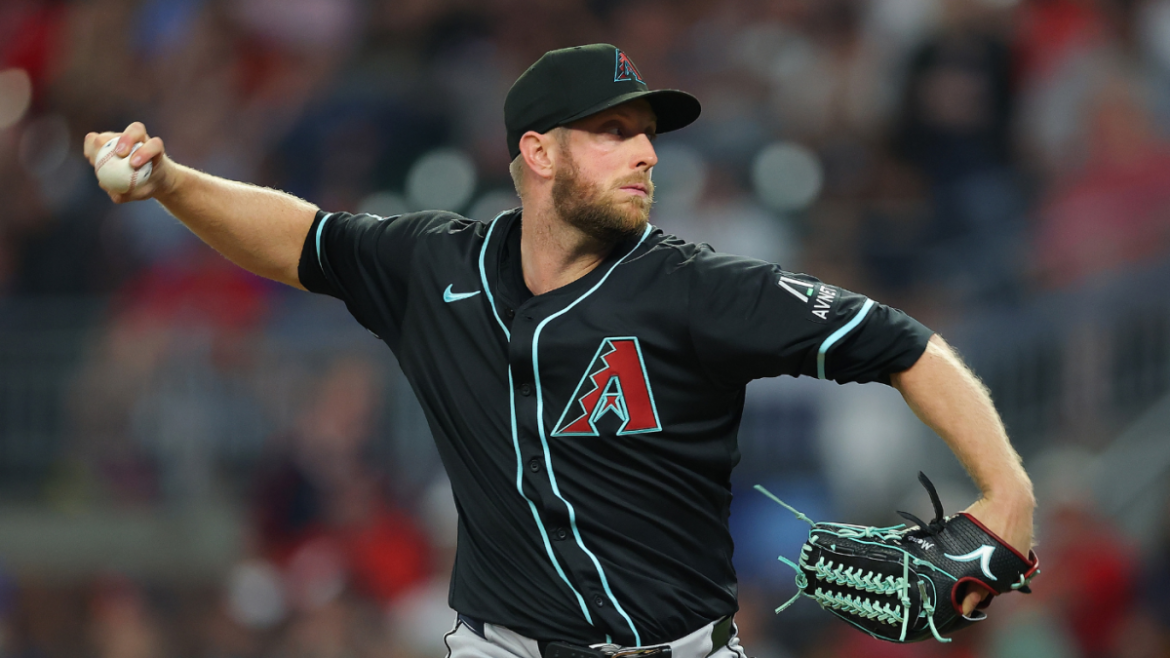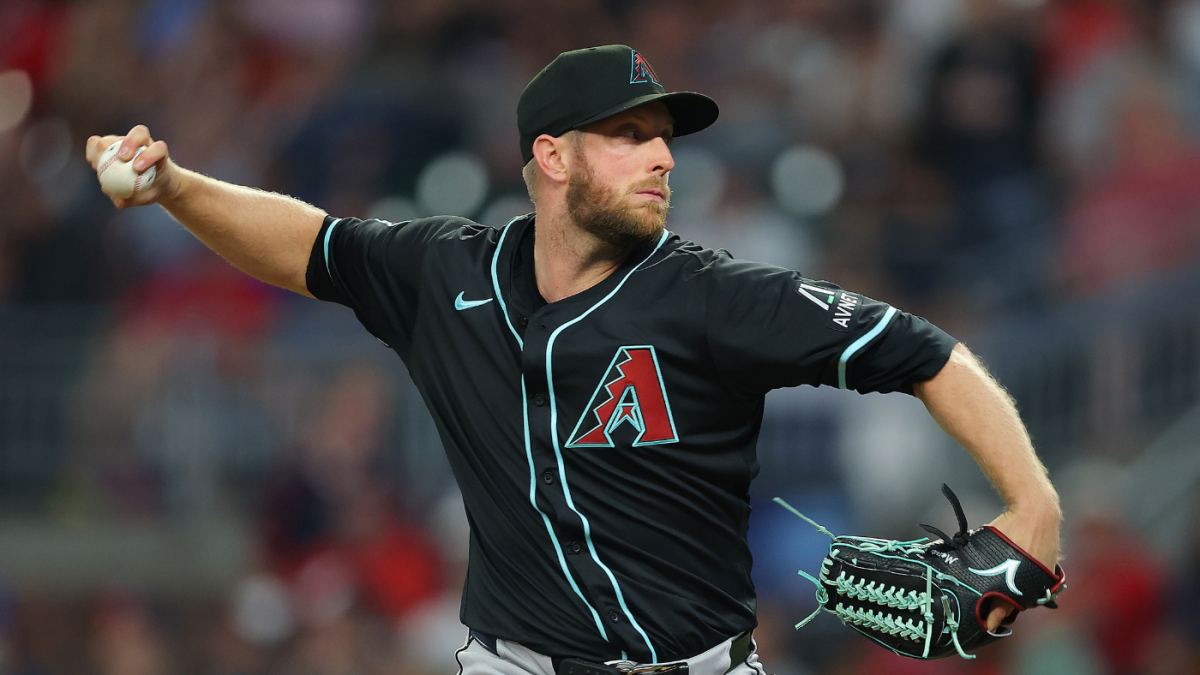The Rangers’ Strategic Gamble: A Deep Dive into the Merrill Kelly Trade
A Rotation Poised for Greatness
The Texas Rangers’ pitching staff has been a cornerstone of their success this season, boasting a league-leading 3.16 ERA. This impressive statistic is not a fluke but a testament to the team’s strategic depth and talent. The rotation features a mix of seasoned veterans and rising stars, each contributing to the team’s dominance on the mound. Nathan Eovaldi, when healthy, has been a linchpin, providing both quality starts and leadership. The Rangers’ rotation was already among the best in baseball, making the acquisition of Merrill Kelly a move that speaks volumes about their ambitions.
Merrill Kelly: The Veteran Anchor
Merrill Kelly is not your typical high-stakes acquisition. He is not known for his strikeout numbers or flashy statistics. Instead, Kelly brings something equally valuable: consistency and reliability. At 36 years old, Kelly has proven his worth with a 3.22 ERA in 22 starts this season. His ability to eat innings and keep his team in the game is invaluable, especially in the high-pressure environment of the postseason.
Kelly’s experience is another critical asset. He has pitched in high-stakes games, including a start against the Rangers in the 2023 World Series. This familiarity with the Rangers’ hitters and the pressure of the playoffs could be a subtle but significant advantage. His durability and composure make him a perfect fit for a team aiming for a championship.
The Cost of Ambition: Prospects on the Move
Every high-stakes trade comes with a cost, and the Rangers’ acquisition of Kelly is no exception. The team parted ways with three pitching prospects: Kohl Drake, David Hagaman, and Mitch Bratt. Each of these prospects represents potential future value, and their departure underscores the Rangers’ win-now mentality.
– Kohl Drake: Details about Drake are limited, suggesting he may be further away from the majors than his counterparts.
– David Hagaman: Hagaman is likely projected as a potential bullpen arm, providing depth and versatility.
– Mitch Bratt: Bratt is a promising left-handed pitcher with a solid fastball and developing secondary pitches. His loss is particularly notable, as quality left-handed pitching is always in demand.
The Rangers are betting that Kelly’s immediate contributions will outweigh the potential future value of these prospects. This is a calculated risk that all contending teams must consider when making deadline deals.
Weighing the Risks and Rewards
Assessing the trade’s success requires a balanced view of several factors: the Rangers’ current position, their window of contention, Kelly’s projected performance, and the potential of the traded prospects.
Given the Rangers’ strong position in the standings and their clear desire to compete for a championship, acquiring a reliable starting pitcher like Kelly makes sense. His consistency and experience fill a need for stability and depth in the rotation. However, giving up three pitching prospects, particularly Bratt, is a significant price to pay.
The trade’s success will ultimately hinge on Kelly’s performance down the stretch and in the playoffs. If he can provide quality starts and help the Rangers make a deep postseason run, the trade will be considered a success. However, if he falters or gets injured, the Rangers may regret giving up those prospects, especially if they develop into valuable major league contributors.
A Statement of Intent
The acquisition of Merrill Kelly is more than just a move to improve the pitching rotation; it’s a statement of intent from the Texas Rangers. It signals to the rest of the league that they are serious about contending for a championship and are willing to make bold moves to achieve their goals. This trade demonstrates a commitment to winning that can galvanize the team and inspire confidence among the players and the fanbase.
The Rangers’ front office has clearly identified pitching as a key to success, and they are aggressively pursuing upgrades to bolster their staff. This proactive approach sends a message that they are not content with simply making the playoffs; they want to dominate and win it all. This aggressive approach can also impact the team’s morale, showing the players that management is invested in their success and willing to provide them with the resources they need to compete at the highest level.
Conclusion: A Bold Bet on the Present
The Texas Rangers’ trade for Merrill Kelly is a classic deadline deal: a high-risk, high-reward move designed to improve their chances of winning a championship. While giving up three pitching prospects is a significant price to pay, Kelly’s experience, consistency, and durability could be invaluable assets down the stretch and in the playoffs. This trade underscores the Rangers’ win-now mentality and their commitment to competing at the highest level.
Whether this gamble pays off remains to be seen, but one thing is certain: the Rangers are all-in on their pursuit of a World Series title. The road to the World Series is paved with tough decisions, and the Rangers have just made one of the boldest. Time will tell if this strategic gamble leads to championship glory or if the cost of the trade becomes a point of regret. For now, the Rangers have sent a clear message to the league: they are here to win, and they are willing to take the risks necessary to achieve that goal.





